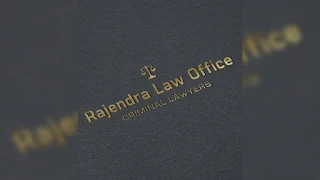Procedure of divorce in India
The procedure of divorce in India is certainly not as easy and effective as most of us would like it to be. A normal case can be expected to take at least one year from the time that the divorce petition filed in court.
Men and women in India must first be prepared for a long drawn process and boring that would involve a large amount of monetary investment and mentally. That being said, the law of divorce is not all that difficult for the layman to understand.
Indian legal provisions
The legal system operating in India known as Indian law. Indian legal provisions largely influenced by ancient texts, Arthashastra (400BC) and Manusmriti (100AD). certain provisions are also taken from the English common code and the law of western countries.India an important source of law is the Constitution of India and the rules issued by the legislature. India President and State Governors also possessed the power to issue regulations. The verdict was passed by the Supreme Court, High Courts and Specialized Courts also form an important source of legislation of India. international trade law, such as the law on intellectual property, which is valid in India.
Religious based Family law
Family law is a branch of the Indian law applicable to a person based on his religion. The three main branches of the family law Hindu law, Christian law, and Islamic law. regulate family law litigation related to personal matters, such as marriage, divorce, guardianship, adoption and inheritance.
Divorce Laws
The procedure for divorce in India is based on the following laws, referred to as "Acts" in criminal law:- The Hindu Marriage Act 1955
- The Parsi Marriage and Divorce Act, 1936
- Dissolution of Muslim Marriage Act 1939
- The Parsi Marriage and Divorce Act, 1936
- The Special Marriage Act, 1956
- Foreign Marriage Act, 1969
The Supreme Court of India has consistently modified and molding these regulations to better reflect the status and ethos of Indian society and the collective consciousness.
In the case of marriages between Muslim partners, Muslim Women Act, 1986 specifically put into place to protect the rights of women, while ensuring that there is no gender bias.
In the case of inter-caste or inter-religion marriages, Special Marriage Act of 1956 called for the separation of healthy and fair.
Couples in India have two choices when it approached the court to file for divorce. The first is that of uncontested divorce or divorce by mutual consent, in which both sides in full agreement on all the issues relating to property distribution, alimony, child custody, etc.
Under Section 13B Hindu Marriage Act
The second option that married couples have is that the contested divorce where couples can not, or will not, resolve their problems peacefully. In this case the problem is entrusted in the hands of the presiding judge, who, after hearing what both sides have to say, make a decision on their orders. Both couples are required by law to comply with the court's decision. but they can be the same appeal in a higher court.
Under Section 13B Hindu Marriage Act, the couple can only apply for a divorce if they have lived apart for at least one year. Both sides will need to reveal their inability to sort out their differences for the judge to continue to give them their decision.
Law for divorce in India is clear, and has a provision in favor of the people of all castes and religious beliefs.
Family life and marriage
Divorce law in India has been simplified over the years. More and more Indian women have started to opt for divorce, which in many respects is a good sign of the changing fabric of Indian society.
Family life and marriage is said to be the most important part in the life of India. But this time it has reformed the social life greatly, making divorce the fact that the Indian community is still grappling with.
People are moving away from the traditional values of India to adopt a more "open" western lifestyle. The idea of dynamism in society, culture, and morals, has begun to change the daily lives of men and women in India.
In the last century, Legal Separation was considered unacceptable in Indian society, which results in discrimination and harassment. the situation has changed now, and with the introduction of online divorce in India, which has accelerated the pace of change.
Concept of online divorce
This is a welcome step because not many people, especially middle-class India, were able to fight it in court. People looking for cheap and fast resume can now proceed with their decision for legal separation without worry.
The concept of online divorce has changed everything. Not only is it cheap and fast, but backward technology has also helped people realize the importance of applying the technology to the local administration and the state.
Other Legal Info:
![Elite Law House [Litigation Services and Best Legal Support 24x7]](https://blogger.googleusercontent.com/img/a/AVvXsEjy6YrTd0Q5uYOAbRE8LVYKORXtgFpaKs0BJmhAerKTXurhFq6sBzO2M5GEqSJ8jKU9FzQlvyWUoKtLupn4Il2S-0DURlE_6iCpDdMyovaRmHPmjcnRGkvrsY6wlus_5e1dXDSagpHdP7V2YzqrzUO4s9PGuhp7FuHPLOw5v1k_mcwbrndBU19rK0YrcTg=s257)
